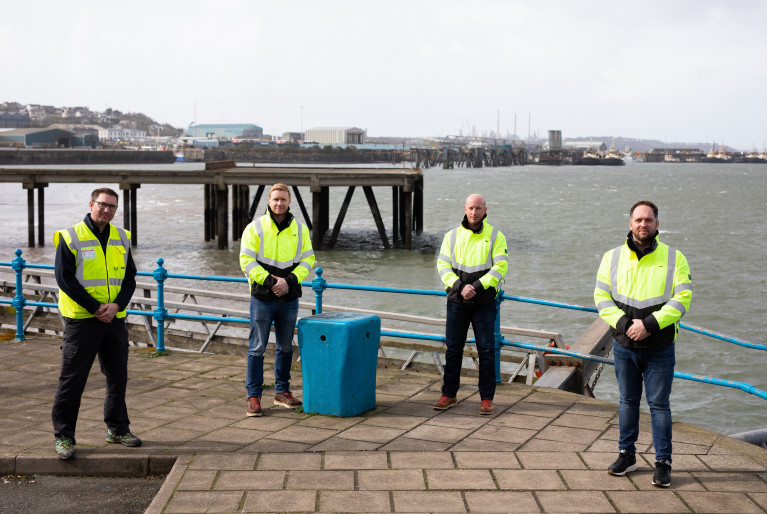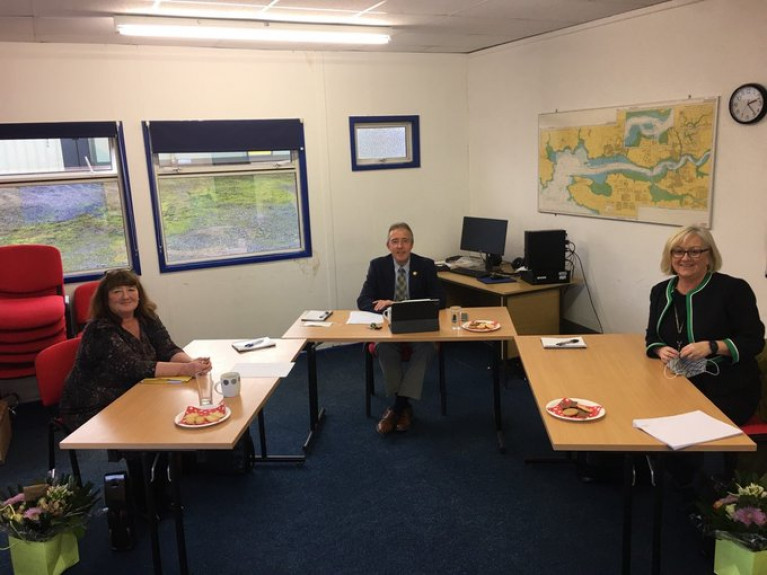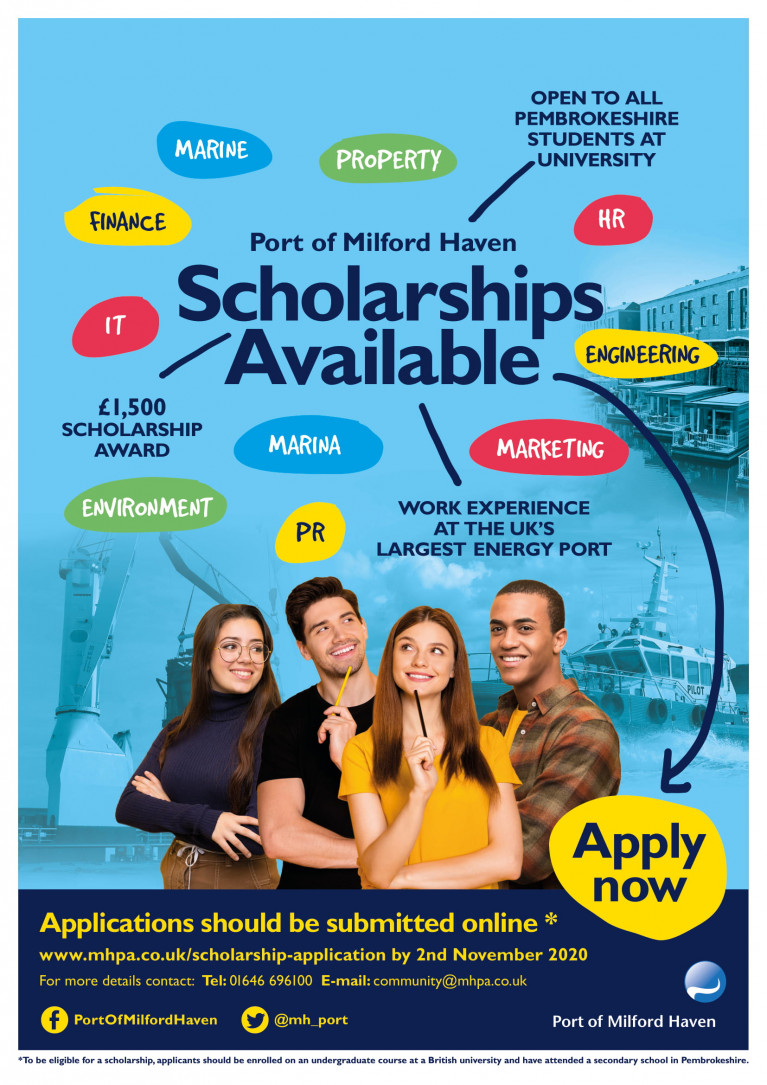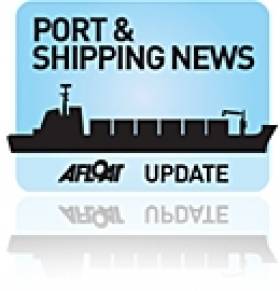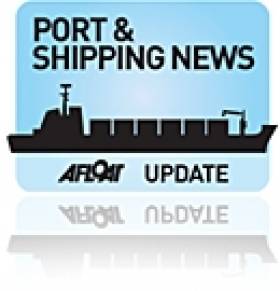Displaying items by tag: South Wales
RNLI lifeboats from Ireland and the UK launched to a Mayday distress call from a fishing vessel taking on water on Friday (8 March).
The 24-metre Irish trawler had five crew onboard and was some 21 nautical miles northwest of Strumble Head near Fishguard in south Wales when HM Coastguard tasked the charity's Welsh lifeboats just before midday.
The all-weather lifeboats and volunteer crew from St Davids, Fishguard, Newquay made best speed to the scene.
HM Coastguard’s search and rescue helicopter R936 from Caernarfon also tasked to assist and was first to arrive on scene, lowering a water pump to the vessel.
With no casualties reported, Newquay lifeboat was stood down en route. St Davids’ Tamar class lifeboat Norah Wortley arrived at 1.10pm with sea conditions rough in a Force 5-7 easterly wind. Fishguard RNLI’s Trent class lifeboat Blue Peter VII arrived at 1.35pm.
With no engine damage and the coastguard pump sufficiently reducing the water level, it was decided the fishing vessel would be escorted the 35 nautical miles west to Ireland.
 St Davids RNLI escorting the trawler as Kilmore Quay lifeboat arrives | Credit: RNLI/St Davids
St Davids RNLI escorting the trawler as Kilmore Quay lifeboat arrives | Credit: RNLI/St Davids
Kilmore Quay RNLI’s Tamar class lifeboat Victor Freeman was tasked by the Irish Coast Guard to complete the escort and launched at 2.10pm. At this point, the Fishguard lifeboat was stood down and returned to Wales.
St Davids RNLI escorted the trawler a further 20 nautical miles west-southwest towards Tuskar Rock until the Kilmore Quay lifeboat arrived at 3.20pm and took over the escort, getting the vessel safely into port around 6pm.
Will Chant, RNLI coxswain for St Davids RNLI’s all-weather lifeboat said: “This rescue was a good, fast response from all crews, which with an incident of this nature was exactly what was required.
“Fortunately the salvage pump from the helicopter was all that was required in order to quell the problems on board the trawler, and after that it was a straightforward but long job of escorting the vessel to safety.
“Our crew even received ‘welcome to Ireland’ messages on their mobile phones, such was the distance from home.”
Offshore Vessel Operator Establishes Base in South Wales Port
Marine renewables sector in south-west Wales, is to High Speed Tranfers Marine, an offshore vessel company, expand into Pembrokeshire after recognising the opportunities of the sector in the region.
HST Marine provides solutions in shipping, vessel management and chartering to industries throughout Europe from their headquarters in Swansea.
After learning at an industry event last year of the £60m Pembroke Dock Marine project, they now occupy an office and warehouse space in the heart of the development at Pembroke Port (see ferry deal) where they will be storing crew transfer vessels, RHIBs and workboats.
Site modifications are planned at Pembroke Port to create a modern port capable of delivering the needs of the marine energy and engineering sectors, including a deep-water slipway. Forming part of the ports' project as alluded, it will create the right conditions for job creation, skills development, supply chain resilience and economic growth.
CEO at HST Marine, Tom Nevin, sees this as a huge opportunity for Pembrokeshire. “Projects such as the Pembroke Dock Marine port infrastructure changes are crucial to HST’s current and long-term business plans. In order to expand, grow and compete with international companies, these types of projects are incredibly important and will help us to establish ourselves in south Wales” he said.
Tim James, Head of Commercial and Energy at the Port, has welcomed the team, commenting “HST Marine are bringing credible expertise and equipment to the growing cluster of specialists attracting year-round, well-paid employment opportunities into our community. Businesses like HST are recognising that Pembroke Dock, in particular, has the potential to play a major part in Wales’ aspiration to meet net zero targets and we must evolve our assets to meet their needs and those of future generations.”
Pembroke Dock Marine is funded by the Swansea Bay City Deal, the European Regional Development Fund through the Welsh Government, and through private investment.
South Wales Port Awards Pembrokeshire Students With Port Scholarships
In south Wales, four Pembrokeshire students have been successful in securing scholarships from the Port of Milford Haven under its prestigious Scholarship Scheme as Afloat previously reported.
Launched in 2003, the Port (including the ferry terminal at Pembroke Dock) has already supported over 70 students through a financial award and work experience.
This year Ella Staden-Coats from Treffgarne, Joshua Price from St Davids, Menna John from Maenclochog and Sam Morris from Dale all impressed the panel with their academic and personal achievements, as well as their ambitions for the future.
Ella is studying English Literature with Writing at the University of the West of England in Bristol, Joshua is at Lancaster University studying Medicine and Surgery, Menna is on a Geography degree at the University of Liverpool and Sam is at the University of Bath studying Economics. They will all receive £1,500 and be invited to the Port for a work placement next year.
Sitting on the panel was Chairman of the Port, Chris Martin; Maxine Thomas, Designated Senior Lead for Safeguarding and Learner Wellbeing at Pembrokeshire College and Headteacher of Haverfordwest High VC School Jane Harries.
Chris was once again impressed with the standard of applications, commenting “It was a privilege to speak to so many talented young people from Pembrokeshire, they are a credit to themselves and their families. I have no doubt they will all excel at university and into the future when they pursue their career aspirations. We hope the scholarships from the Port will assist them, not only financially, but through the valuable experience and skills they will gain from the work placements.”
Welsh Port’s Scholarship Scheme Opens for Pembrokeshire University Students
Port scholarships for university students from Pembrokeshire, south Wales are being encouraged for them to apply to the Port of Milford Haven’s scholarship scheme.
The annual initiative offers undergraduate students the chance to apply for an award of £1,500, as well as a work placement at the UK’s largest energy port. To be eligible, applicants must have spent the majority of their secondary education in Pembrokeshire and be enrolled on an undergraduate course at a British university.
Sitting on the judging panel this year are Chris Martin, Chair of the Port of Milford Haven; Maxine Thomas, Designated Senior Lead for Safeguarding and Learner Wellbeing at Pembrokeshire College and Jane Harries, Headteacher at Haverfordwest High VC School. Interviews will take place with the shortlisted applicants in December.
Over seventy undergraduates have been awarded scholarships by the Port in a wide range of subjects since the scheme was launched in 2003 including engineering, nutrition, law and history.
Chris Martin, Chair at the Port, is looking forward to receiving this year’s applications:
“I am delighted to be part of the panel again. The standard of applications that we receive is consistently high, so much so that we awarded five scholarships instead of the usual four last year! In addition to the financial support that’s provided, we find that the placement offers huge benefits as the students are based in a real working environment assigned to meaningful projects that will hold them in good stead for the future.”
For more information and to submit an application please visit this link here.
Fastnet Line Cancel Tonight's Sailing
Operators of the Cork-Swansea route, Fastnet Line regret to announce that tonight's (13 January) sailing from Cork to Swansea is cancelled. The company has cited technical reasons for the cancellation of the sailing. The 10-hour route linking Munster with South Wales is served by the M.V. Julia.
Fastnet Line are contacting all passengers to assist in making re-bookings or refunds. Those wishing to contact the ferry operators' reservation team for further information can contact the details listed below.
The Julia is to go into dry-dock this week in Swansea. The vessel will remain in Swansea while undergoing annual maintenance up to and including Wednesday 9th February. Her first sailing will be at 20.30hrs from Swansea to Cork on Wednesday 9th February 2011.
To contact the Fastnet Line Irish Reservations Office Tel: +353 (0) 21 4378892 (Open Monday – Friday) 9.00 am - 6.00 pm
To contact the UK Reservations Office Tel: 0844 576 8831
(Open Monday – Thursday) 8.00 am - 8.00 pm
(Open Friday) 8.00 am - 7.00 pm
(Open Saturday and Sunday) 9.00 am - 6.00pm
For further information logon to www.fastnetline.com
Fastnet Line Exceed Expectations
Fastnet Line recorded carrying over 60,000 passengers up to the end of August since the Cork-Swansea route re-opened in March, served by the 21,699 tonnes M.V. Julia, writes Jehan Ashmore.
Commenting on the inaugural season, Paul O'Brien, general manager of Fastnet Line said figures were ahead in June, July and August by an average of 10%. Over 13,000 passengers were carried during July and 15,000 in August on the 10-hour service.
Businesses in the south-west region have reported increased tourism activity and is it from here and in south Wales that many of the shareholders have invested to form the West Cork Tourism Co-operative, which runs Fastnet Line. In 2006, the previous operator of the route, Swansea-Cork Ferries closed the service after selling their vessel, the Superferry to interests abroad.
Marketshare between Ireland and UK passengers appears to be evenly split with the tourist gateway to south-west Ireland proving particularly
popular with Londoners reaching Swansea using the M4 motorway. Motorists can save over 600km /370 miles on the direct round trip compared to alternative ferry routes between Rosslare and Pembrokeshire ports.
During the first two months of operation, booking revenues were in excess of £3m (sterling) alone, with over 15,000 passengers using the 1,860 capacity and freight-ferry, Julia. Unsurprisingly there was a 100% boost in April bookings arising from travel disruption caused by the Icelandic volvanic ash-cloud.
The year-round overnight service operated eight sailings weekly in the high season and is now down to six. Notably there are no Monday sailings as Julia spends a lay-over period at the Ringaskiddy ferry terminal in Cork.
The freight market will continue to be important factor during the offseason with the British Bermuda flagged Julia capable of loading 40 trucks or trailers. As for passengers, Fastnet are promoting short-break and mini-cruise offers only on sailings up to December 21st.



























